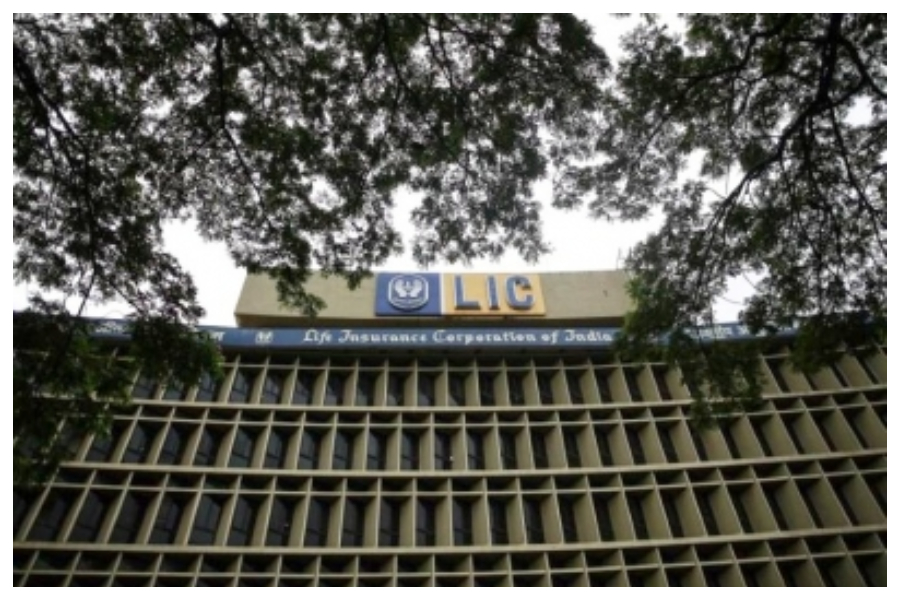Business
Proposed amendments to insurance laws may lead to disputes in health claims, misappropriation: Unions

The proposed amendment to the definition of health insurance business is not exhaustive and may lead to disputes at the time of claims, said four unions in the Life Insurance Corporation of India (LIC).
The Unions also said the proposed amendments does not define the term liability which may lead to misappropriation by the insurers.
The four unions are: Federation of LIC of India Class I Officers’ Association, National Federation of Insurance Field Workers of India, All India Insurance Employees Association and All India LIC Employees Federation.
The Indian government has proposed drastic changes to the two insurance laws – Insurance Act 1938 and the Insurance Regulatory and Development Authority Act 1999- and has called for stakeholders views the planned changes.
Scrapping of the statutory Rs 100 crore startup capital for life and general insurance business and Rs 200 crore for reinsurance business, allowing different kinds of insurers including captives, changing the investment provisions are some of the major amendments proposed by the Indian government to the insurance laws.
The government also proposes to allow an insurer to distribute other financial products as specified by and subject to regulations and to services related or incidental to insurance business.
As per the proposed amendment to Section 2(6C) of the Insurance Act 1938 “health insurance business” means effecting contracts of insurance that provide sickness benefits or pay for medical and health expenses.
Quoting the existing definition in the Act, the four unions said the existing definition of health insurance business is explicit to include sickness, medical, surgical or hospital expense benefits.
However, the proposed amendment is not elaborative which may lead to dispute during a claim and the insurers may find scope to harass the customer. Therefore, the existing definition should not be replaced, the four unions said.
The employee unions are also opposed to the idea of insurers distributing insurers to distribute other financial products as it may distract the companies from their insurance products, distribution and proper attention on serving the policyholders.
Industry experts also told IANS that the policyholders funds should be ring fenced so that it is not touched by the players in the case of any liability that may arise due to selling other financial products.
The amendments to the laws are proposed in order to increase the penetration of insurance in the country, which continues to be low even after over two decades after opening up the sector.
The employee unions are also against the government’s plan to bring down the net owned funds to Rs.500 crore from the existing Rs 5,000 crore for a reinsurer.
Moreover, the minimum requirement of Rs 5,000 crore was enacted years back. Since then, huge inflation has taken place.
“Reduction in requirement by one tenth may result in insolvency which will put the customers in great sufferings. Therefore, we are of the opinion not to reduce the amount of net owned funds for new registration,” the unions said.
Referring to the proposed amendments to Section 27 of the Insurance Act, the unions said the proposed change does not define the liability, which may lead to misappropriation by the insurers.
Therefore, the liability must be defined in explicit terms.
On the proposed deletion of Section 27A of the Insurance Act the unions said: “This section deals with the provision of investments with a conservative view to safeguard the interests of the policy holders. Omission of this section may allow for irresponsible investments by the insurers causing huge harm to the customers.”
The unions are also against allowing multilevel marketing in the insurance sector.
Appointment of principal agent, chief agent and special agent to transact any insurance business will bring complexity in the system and will increase the probability of mis-selling as well as fraudulent acts, they said.
Business
India-New Zealand FTA: PM Modi, Luxon aim to double bilateral trade over 5 years

New Delhi, Dec 22: Prime Minister Narendra Modi held a telephone conversation with New Zealand’s Prime Minister, Christopher Luxon, on Monday as the two leaders jointly announced the successful conclusion of the historic, ambitious and mutually beneficial India-New Zealand Free Trade Agreement (FTA).
During the conversation, both leaders expressed confidence in doubling bilateral trade over the next five years as well as an investment of $20 billion in India from New Zealand over the next 15 years.
The negotiations began in March this year and the two leaders concluded the FTA in a record time of nine months, reflecting the shared ambition and political will to further deepen ties between the two countries, according to a statement from Prime Minister’s Office (PMO).
“The FTA would significantly deepen bilateral economic engagement, enhance market access, promote investment flows, strengthen strategic cooperation between the two countries, and also open up new opportunities for innovators, entrepreneurs, farmers, MSMEs, students and youth of both countries across various sectors,” said the statement.
The leaders also welcomed the progress achieved in other areas of bilateral cooperation such as sports, education, and people-to-people ties, and reaffirmed their commitment towards further strengthening of the India-New Zealand partnership.
This historic FTA eliminates and reduces tariffs on 95 per cent of New Zealand’s exports – among the highest of any Indian FTA – with almost 57 per cent being duty-free from day one, increasing to 82 per cent when fully implemented, with the remaining 13 per cent subject to sharp tariff cuts.
It puts New Zealand exporters on an equal or better footing to our competitors across a range of sectors and opens the door to India’s rapidly expanding middle class, according to an official statement from New Zealand.
“The Indian economy is forecast to grow to NZ$12 trillion by 2030. The India-NZ Free Trade Agreement unleashes huge potential for our world-class exporters to the world’s largest country and will significantly accelerate progress towards New Zealand’s ambitious goal of doubling the value of exports over 10 years,” it added.
Business
Mumbai-Bound Air India Flight Returns To Delhi Airport Minutes After Take Off Due To Technical Glitch

New Delhi: A Mumbai-bound Air India flight AI887 returned to the Delhi Airport minutes after take-off due to a technical issue. The Delhi–Mumbai flight made an emergency landing according to standard operating procedure.
As perv an Air India spokesperson, the aircraft (Boeing 777) landed safely at Delhi, and the passengers and crew disembarked.
The Boeing 777 suffered an engine issue soon after take-off, reported The Times of India. The aircraft reportedly took off at 6.10 am and returned to the airport at 6.52 am. The aircraft is currently undergoing necessary checks.
As per the report, the airline arranged another B777 (VT-ALP) for passengers and even provided refreshments for them.
On Sunday, over 100 flights were cancelled from the Delhi Airport due to dense fog conditions in the national capital. Meanwhile, more than 400 flights were also delayed at the airport.
Over the past few days, most parts of the nothern and northwestern regions of the country are witnessing dense fog condition.
“Dense to very dense fog conditions during night/morning hours very likely in some parts of Uttarakhand, Uttar Pradesh, Haryana till morning hours of 21st; in isolated pockets of Punjab, Haryana during 25th-27,” the India Meteorological Department (IMD) had said in its press statement on Sunday.
On Friday also, an Air India flight travelling from Mumbai to Varanasi was forced to make an emergency diversion to Bhubaneswar after deteriorating weather conditions made landing at the destination airport unsafe. The aircraft landed at Biju Patnaik International Airport (BPIA) as a precautionary measure, airline officials confirmed.
Business
Sensex, Nifty open in green zone amid positive global cues

Mumbai, Dec 22: Indian benchmark indices opened in green zone on Monday, breaking the last week’s trend of edging lower, amid strong buying in the US and China markets.
As of 9.30 am, the Sensex advanced 507 points, or 0.60 per cent, at 84,436 and the Nifty added 165 points, or 0.64 per cent to 26,132.
The broad cap indices performed in line with the benchmarks, with the Nifty Midcap 100 up 0.58 per cent and the Nifty Smallcap 100 adding 0.51 per cent.
Hindalco, Tech Mahindra and TCS were among the major gainers in the Nifty Pack, while losers included Asian Paints, Bajaj Finance, Max Healthcare and Cipla.
All the sectoral indices on NSE were trading in the green with metal, IT and media being the major gainers — up around 1.48, 1.23 and 0.77 per cent, respectively.
Analysts noted that market is likely heading for a year-end rally. The rupee’s sharp reversal and FIIs’ cash market purchases can accelerate this rally, as they lead to short covering, pushing benchmark indices higher. The Goldilocks domestic economic set up and potential earnings growth uptrend can support a market upturn, they added.
The US markets ended mostly in the green zone on the last trading day, as Nasdaq advanced 1.31 per cent, the S&P 500 edged up 0.88 per cent, and the Dow moved up 0.38 per cent.
As investors parsed China’s central bank keeping loan prime rate steady, Asia-Pacific markets rose on Monday.
The People’s Bank of China maintained its 1-year and 5-year loan prime rates steady, which affects most new and outstanding loans and mortgages.
In Asian markets, China’s Shanghai index advanced 0.64 per cent, and Shenzhen dropped 1.36 per cent, Japan’s Nikkei edged up 1.75 per cent, while Hong Kong’s Hang Seng Index added 0.29 per cent. South Korea’s Kospi added 1.72 per cent.
On Friday, foreign institutional investors (FIIs) sold equities worth Rs 2,387 crore, while domestic institutional investors (DIIs) were net buyers of equities worth Rs 5,200 crore.
-

 Crime3 years ago
Crime3 years agoClass 10 student jumps to death in Jaipur
-

 Maharashtra1 year ago
Maharashtra1 year agoMumbai Local Train Update: Central Railway’s New Timetable Comes Into Effect; Check Full List Of Revised Timings & Stations
-

 Maharashtra1 year ago
Maharashtra1 year agoMumbai To Go Toll-Free Tonight! Maharashtra Govt Announces Complete Toll Waiver For Light Motor Vehicles At All 5 Entry Points Of City
-

 Maharashtra1 year ago
Maharashtra1 year agoFalse photo of Imtiaz Jaleel’s rally, exposing the fooling conspiracy
-

 National News1 year ago
National News1 year agoMinistry of Railways rolls out Special Drive 4.0 with focus on digitisation, cleanliness, inclusiveness and grievance redressal
-

 Maharashtra1 year ago
Maharashtra1 year agoMaharashtra Elections 2024: Mumbai Metro & BEST Services Extended Till Midnight On Voting Day
-

 National News1 year ago
National News1 year agoJ&K: 4 Jawans Killed, 28 Injured After Bus Carrying BSF Personnel For Poll Duty Falls Into Gorge In Budgam; Terrifying Visuals Surface
-

 Crime1 year ago
Crime1 year agoBaba Siddique Murder: Mumbai Police Unable To Get Lawrence Bishnoi Custody Due To Home Ministry Order, Says Report












